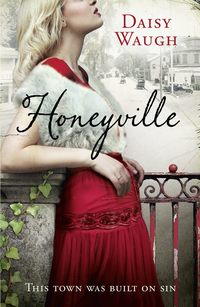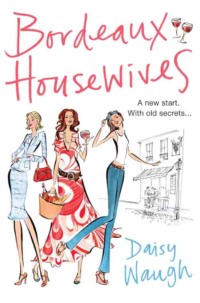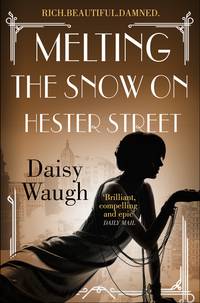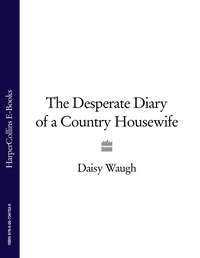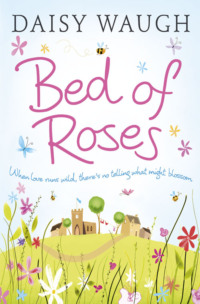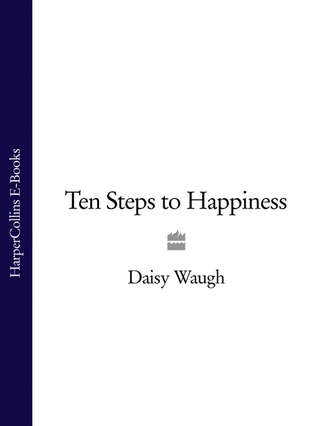
Полная версия
Ten Steps to Happiness
‘…Charlie?’
No response, just a distant shuffling, followed by a long, low moan.
‘…Charlie!’
Slowly, carefully, in almost total darkness, she followed the sound as far as the back lobby, where she paused for a moment. She could hear breathing very clearly now: heavy, quick-fire, phlegmy breathing, like a sleeping giant. The back lobby led on to the kitchen, and beyond that to the pantry and the boot room, and from there to the stairs which went down to the cellars. The thin stream of light was coming from the cellars, somewhere Jo and her notebook had not bothered to venture before.
Tentatively, she walked down the steps and found herself in a large, dank room cluttered with what looked like pieces of rotting furniture. There was a room on either side of her, both of them in darkness, and in front of her, a miserable, decaying corridor. She could hear the noises coming from beyond it: the breathing, someone hammering and then Charlie, ‘It’s OK, girl. It’s OK. Take it easy. Just a bit of noise. I’ll be done in a sec.’
Which was when she finally saw them. Dwarfing the corridor and the small room at the end of it, dwarfing Charlie: two old Highland cows, covered in cobwebs and flakes of rotting paint, puffing after their strange exertions.
Charlie looked up. ‘Jo!’ he said. ‘It’s—How are you? I thought you were asleep.’
‘What the fuck are you doing?’ she asked.
‘What? Me? Nothing.’
‘Nothing?’
‘Shh! You’ll frighten the girls.’
‘The girls?’ Gingerly, to ensure that she wasn’t dreaming, she edged forward and put out a finger to touch one of them. It responded with a friendly grunt and by wiping its damp nose on the sleeve of her outer jersey. She snatched her hand away quickly. ‘Charlie, they’re not girls, they’re cows. What are they doing in the cellar?’
‘Jo…You’re wonderful.’
‘What?’
‘I’m just saying—’ He hesitated. ‘This has nothing to do with you.’
‘Are you hiding them?’
‘Please. Mind your own business.’
‘What if they’re infected?’
‘They’re not infected. They’ve been nowhere near any other farm animals for almost twenty-five years. But I’m going to let them work out their quarantine down here, just to be sure.’
‘Don’t be ridiculous, Charlie. We’ve got to get these cows back in the shed where they belong—’
‘They’re not going anywhere.’
‘Apart from anything else it’s not—I mean they’re probably not going to make it through the winter anyway. It’s not worth it.’ Charlie glared at her and, without another word, turned back to his hammering. He was trying to fix a plank over a large air vent, but every time he hit the nail, chunks of wall fell out. She watched him for a while. ‘I’m sorry. I don’t mean to be—’ She paused to think of the right word, but all she could come up with was ‘realistic’. She decided not to fill the gap.
‘You must be freezing,’ he said over his shoulder.
‘I’m fine, Charlie, my darling. That’s not really the point.’
‘I know it isn’t.’ He turned back to face her. ‘The point is I’ve got to get this place soundproofed before morning. So please. Seriously. I love you and everything. But either give me a hand, or – go away.’
She looked at the old cows, so gentle and decrepit, their heads and necks still bobbing rhythmically from the trouble of getting down the cellar stairs, flakes of paint the size of saucers hanging off their enormous horns. She looked at Charlie, so utterly in earnest. A year ago, in her more black-and-white days, she might easily, at this point, have decided to bring in the police. That night she didn’t know what to do. The cows couldn’t do any harm, working out their quarantine down here in the cellar, and the idea of getting them out again, and then tomorrow of watching Charlie lining them up for the stocks…
‘By the way, Charlie,’ Jo said sulkily about a minute later, sounding absurdly, self-consciously casual. They were squeezed between the cows and the decaying wall, trying together to fix the soundproofing plank without causing the whole rotten cellar to disintegrate. ‘I’m pregnant. Already. OK?’ (She was embarrassed; it was embarrassingly quick.) ‘I only mention it because we’d better not get caught. I mean I’m definitely not going to prison over this.’
The extermination process was a long and horrible one, beginning before dawn had properly broken, and not ending until dusk on the following day. First to be slaughtered was the dairy herd. It took seven men five hours to dispatch them. Les, the Fiddleford farm hand, would set each one on her journey, steering her the hundred-odd yards through the snow, down the steep path, to the makeshift stall where Charlie stood ready to slip her head into a brace. She would be injected with sedative and then led from the stocks to the land in front of the pyre, as close as possible to the body of the cow which had preceded her, where she would be shot in the head.
Nobody spoke much. The animals rolled in, the animals rolled out, the bodies piled up. The Ministry people had seen it all before. They’d been doing it every day for weeks, which isn’t to suggest that they were enjoying themselves. But it was a job with an hourly rate. It wasn’t their twin sister’s billy goat who was waiting in the yard to have its brain scrambled.
Grey McShane shuffled out to the killing fields just before noon, by which time the slaughterer’s regulation white body suits were soaked in blood. He should have been wearing one himself. One had been left by the back door for him. But Grey was not fond of orders.
In fact he was wearing a Prada suit which had lost its buttons and a pair of the General’s old gumboots. He was carrying a bottle of gin, as he always did, and his big black coat was dragging in the mud behind him. One of the Ministry men hurried across the field to intercept him.
‘It’s strictly no access without the suit,’ he said, inadvertently wiping the blood from his cuff across his nose and forehead. ‘I’m sorry, sir. Someone should have told you. The clothes will have to be burnt now.’
‘What clothes?’
‘The er—suit. Everything. Sorry. Regulations.’
‘Aye,’ muttered Grey distractedly, walking politely around him.
Having offered Charlie his help, and been greatly relieved when it was rejected, Grey had intended to play as supportive a role as he could in the proceedings, but from inside the house, as far away from the smell of blood as was supportively possible. Looking at the carnage, the rows of bodies, the white-suited men with their disinfectant sprays and bloodstains, the sound of the gun, he was finding it very hard to stay focused. He wished he could turn back, but a crisis was developing and he needed Charlie’s help. He took a deep swig at the gin to stop himself from vomiting. He looked back at the Ministry man. ‘Where is he, then?’
‘Who?’
‘Where’s Charlie?’
‘Charlie?’
‘Charlie,’ he said coldly, ‘is the man whose animals you’re in the process of exterminatin’. Charlie Maxwell McDonald.’ Grey glanced disconsolately around the field. ‘Where the fuck is he?’
‘He’s round the corner, by the stocks. But you really can’t—I must insist—’
Grey, thirty-eight years old that summer, had been quite famous once, when he was thirty-seven. Like his friend Jo, he was a refugee from London, from the successful people’s party circuit, but unlike Jo, who’d thrived in it for ten years or more before she pressed the ejector button, Grey McShane had lasted only a matter of weeks. An enormous, miraculously handsome Scottish ex-jailbird, alcoholic and former tramp, he was ‘discovered’ by a handful of fashionable opinion makers, drunkenly reciting his own poetry outside a well-known theatre in Islington. Not long afterwards, Phonix Records had hitched itself onto the McShane bandwagon and offered him an unheard of £1 million contract to make an album of his poetry. The marketing people proclaimed him a genius, a voice for a disenfranchised generation, a living embodiment of a modern generation’s pain. And Grey was one of the few people who had never believed them. Anyway the contract was withdrawn soon afterwards, when Grey was wrongly denounced as a paedophile, at which point (for about a week) he became the nation’s most hated figure, hounded and jeered at on the front of every newspaper. Nobody was surprised when, a week or so after that, the geniuses at Phonix suddenly came to the conclusion that Grey wasn’t a genius after all.
That was back in October. He’d been hiding out with his friends at Fiddleford ever since, the living inspiration for Charlie and Jo’s new business venture, a lonely, private figure who insisted on paying over the odds for his board and lodging, and who so far displayed no signs of ever planning to leave. He was bad-tempered, lazy, reckless, argumentative, funny, brave and, when he thought someone deserved it, heroically loyal. The General adored him. Charlie and Jo, both several years his junior, often suggested that he find somewhere else to live, but they no longer expected it and in fact they would have been quite sorry to see him go. He had been instrumental in bringing the two of them together, and now, as he picked his way through the carcasses, swallowing his own bile and dodging the bossy men in suits, he was about to fight for their interests once again.
‘Ah. There you are, Charlie,’ he said. ‘At last. How’s it goin’?’
‘Hi Grey,’ muttered Charlie, without looking up. There was a cow’s head lodged between his forearms. He was watching intently while a vet emptied his syringe into the vein beneath her tail. A moment later Charlie released the cow and stood back, patting its fat, healthy rump for the last time as it was ushered away. Grey leant towards Charlie. ‘Something’s come up,’ he whispered. ‘You’re needed at the house.’
‘Is it Jo?’
‘Excuse me,’ interrupted the vet, ‘but you need to be wearing one of the suits down here. Someone should have told you.’
‘I know that already,’ said Grey helpfully. ‘I’ve come to fetch Charlie.’ He looked back at the space where Charlie had been standing. ‘…Charlie?’
Grey didn’t catch up with him until they reached the boot room door. ‘It’s nothing to do with Jo, you silly sod,’ he panted irritably. ‘Calm down. It’s yer bloody cows.’
‘Cows? What cows?’
‘Och, for God’s sake! You woke the whole bloody house last night. What bloody cows do you think?’
Just then, from almost directly beneath them, came an unmistakable, ground-shaking bellow. Charlie removed his cap and tugged with embarrassment at his dark hair. ‘Oh. Those cows,’ he said feebly. ‘Has anyone else heard, do you think?’
Grey chuckled. ‘The General and me have bin ignorin’ it all morning, shouting at each other to pass the marmalade, pretending there’s always cows bellyaching through the kitchen floor at us. I swear they’ve been making the fuckin’ windows rattle…I don’t know about Jo, though. I haven’t seen her.’ Grey looked as tactful as he could, but he, like Charlie, had known Jo in the olden days, when she was as priggish as all her fashionable friends. Ex-friends. She was much more laid-back recently, but there were times when she still reverted – especially when she was under pressure.
‘Oh. No. Don’t worry about Jo. She helped me,’ said Charlie. He looked at Grey and smiled slightly. ‘Jo’s fine. Has anyone else heard?’
‘I don’t think so, no. Mrs Webber’s not in today. I checked. Anyway she’s totally deaf. Have you noticed? She can’t hear a bloody word.’
‘What about Les?’
‘I don’t know.’
‘Mr Tarr?’
‘I don’t know.’
‘Have any of the MAFF people used the lavatory?’
‘Fuck, I don’t know. What do you think? I’ve been standing guard here all mornin’? If they had they would have said something. So I suppose not.’
There came another earth-shattering groan from beneath them. ‘Aye,’ said Grey matter-of-factly. ‘It’s happenin’ about every couple a’ minutes. It’s pretty constant. Sometimes they just keep goin’ on. Did you not think about the soundproofing? What were you bloody doing down there all night?’
Neither of them had the faintest idea how many sleeping pills each cow needed but since Grey had only twenty left, they gave ten to each. They ground them into bowls of warm milk and Charlie took them down to the cellar while Grey and Jo – whom they’d found wandering the boot room with her notebook – kept guard and each other company at the back door.
The cows looked resentful, bewildered and slightly mad when Charlie found them. They were covered in sweat and a thick layer of ceiling plaster, which rained onto them every time their vast horns knocked against any of the walls. But they drank the milk without any trouble and Charlie stayed with them talking, reminiscing. They seemed to draw comfort from the familiar sound of his voice.
After a while Jo grew worried that the MAFF people would be missing him, and decided to go down and fetch him out. She found him sitting on one of the straw bales they had carried down together the previous night. He was leaning his long legs against the rump of one of the animals, holding his dark head in his hands, deep in thought. He looked so sad it stopped her in her tracks. She watched him for a moment, unsure how to break the silence. She felt like an intruder.
‘Which one was yours, Charlie?’
He looked up slowly, with a faint smile of welcome. ‘This one,’ he said, nodding at his feet. ‘Jasonette. At least, I wanted to call her Jason. But Georgie said…you know…Jason was a boy’s name…’ He fell silent.
‘Jasonette…’ Jo smiled. ‘You know you should probably get back out there, Charlie,’ she added gently. ‘They’ll be wondering where you are.’
‘I know.’ He didn’t move. ‘I just—it sounds ridiculous, but I don’t much want to be there when they kill…I should never have told them about the bloody goat.’
‘You had to. He’s been living with the other animals. If they were infected—’
‘Which they bloody well aren’t.’
‘Yes, but for all you knew he was infected, too.’
‘He could have been down here now…’
Jo went to sit on the bale beside him. She put an arm around him and they sat together for several minutes without speaking, watching as the animals’ eyelids grew heavy. Charlie was lost in his grieving, and Jo could do nothing for him except sit with him and wait. She had never known Charlie’s sister but he spoke about her so often she sometimes forgot they’d never actually met. Strong-minded, bold, friendly and incredibly hearty, Georgina Maxwell McDonald would have been the sort of girl Jo disliked on sight not so long ago. Now, living in a house with three men, and already far less troubled than she used to be by what passed for urban hip, Jo wished that she and Georgina could have been friends. Sometimes (which she kept to herself because she knew it was absurd) Jo even found herself missing her. At that moment, sitting beside Georgina’s mourning twin and feeling hopelessly inept, hopelessly impotent, Jo didn’t care how absurd it seemed. She missed her sister-in-law, or the sister-in-law she imagined, more than she had ever missed anyone, alive or dead.
‘I’m so sorry,’ she burst out. ‘It must be so awful for you. I wish I could…’ and to her dismay she started crying.
‘Hey,’ he said, laughing slightly and giving her shoulders a squeeze. ‘Hey…’
‘I’m so sorry.’
‘Oh, I know you are, Jo…thank you…’
And they fell silent again, neither noticed for how long. Suddenly Grey (whose natural impatience had been kept in admirable check until then) yanked them rudely back to the moment.
‘Jesus fuckin’ hell, I’m freezin’ my arse off out here! Are they not asleep yet? I can’t hear a soddin’ sound!’
The cows slept all that afternoon and all night and most of the following morning. By the time they started getting restless again it was lunchtime and most of the work was already done. But there were still half a dozen Ministry men hanging around and the pyre was yet to be lit. Charlie, Grey and Jo met up in the cellar to decide what they should do next. They had run out of sleeping pills and the cows had rejected the litre of vodka mixed with milk and golden syrup. Jo produced a small bottle of Rescue Remedy and was arguing about how to get the drops onto the animals’ tongues when Jasonette’s right horn sent the bottle flying.
‘Well, fuck that,’ said Grey. ‘That’s fucked that then, hasn’t it?’ He made the animals jump.
‘Will you stop shouting,’ snapped Charlie.
‘Charlie, calm down. He’s only trying to help.’
‘Well. He’s not succeeding. He’s scaring the girls.’
‘Och, sod off.’
‘Yeah, Charlie,’ said Jo. ‘Actually I second that.’
The humans were growing as tetchy as the animals, and the animals were growing tetchier and noisier with every minute. Nobody noticed the General until he was standing right beside them.
‘EXCUSE ME!’ They all jumped. ‘Sorry to butt in,’ he said dryly, ‘but we may have a small problem. The fellow from Trading Standards has just called. He’s been in touch with the BCMS, whatever that may be. Or the BC something else. Anyway he seems to think there may be a couple of beasts up here which we haven’t accounted for…I told him it was nonsense, of course, but I’m afraid he’s like a dog with a bone. He’s on his way over.’
When he arrived the four inhabitants of Fiddleford were standing in a line at the end of the drive waiting for him. The plan, in as much as they’d had time to form one, was first and foremost to keep him away from the house. It was decided that the General, as soon as things looked dangerous, would discombobulate by feigning some sort of health attack; Jo, who didn’t like long walks, would rush him into the house and then Charlie and Grey, with an air of repressed panic and polite martyrdom, would insist on pressing on with the business, leading him on a circuitous route to the furthest end of the estate. When the man was looking exhausted, blue with cold, faint with boredom and regret at ever having returned to Fiddleford, they would direct his attention to a mound, a little hillock, a snow drift, anything which looked appropriate, and tell him they thought (though they couldn’t be certain what with the snow, and after so much time had passed) it was the place where the cows had been buried eleven years earlier.
It was a ludicrous plan and it didn’t work. Obviously. Because the first thing the man wanted to do, after expressing wholly unfelt regret for disturbing them once again, was to go to the lavatory.
‘Lav’s blocked,’ said the General, squaring his shoulders, refusing to break the line. ‘Sorry about that. Pipes are frozen. Have to go behind a tree…I think—Charlie, didn’t you bring a trowel with you, just in case the fellow came up with something like this?’
‘Certainly did,’ said Charlie, producing one from his back pocket.
‘Oh goodness, not to worry.’ Mr Coleridge gazed longingly between their heads at the handsome building behind them. ‘Isn’t there, perhaps, a functioning toilet I could use upstairs?’
‘No toilets,’ said Charlie. ‘Sorry.’
‘Ah well, never mind. I shall just have to store it up…’ He rubbed his soft white hands together and shivered. ‘Perhaps a cup of tea then? I won’t take up too much of your time. It’s just a simple matter to clear up, as you know. I’m sure it’s nothing. A minor oversight.’
‘Tea’s run out,’ said Jo. ‘Anyway it’s a diuretic. It’ll make you worse. Why don’t you let Charlie and Grey quickly take you off to where the poor old cows are buried? That way we won’t be wasting your time – and goodness knows you must be busy. And then if you get caught short along the way—’
Coleridge frowned. He didn’t like to be outside for any longer than he needed to be and he had absolutely no intention of spending his afternoon trudging through the snow in search of illegally buried animals. ‘This probably isn’t the time to mention it,’ he said, ‘and of course I realise the Act doesn’t, strictly speaking, apply to me. But you should be aware that you are in fact legally obligated to provide workers with a functioning toilet as well, of course, as the usual facilities for making hot beverages. Under the Health and Safety at Work Act. 1974. I only mention it because I wonder how the others are managing. Or perhaps you have provided alternative arrangements…’
Jo opened her mouth to say something appropriately soothing, but the General didn’t give her a chance to speak. He had yet to learn what a powerfully efficient ally he had in his annoying new daughter-in-law, so at the mention of unfulfilled legal obligations, he panicked.
‘Aaarrrggh!’ he cried, clutching his heart melodramatically and staggering forwards.
Immediately and with surprising elegance, Mr Coleridge lunged to catch him.
‘Quickly!’ he shouted, gripping the General’s shoulders. ‘Don’t just stand there! Let’s get him inside the house!’
The General struggled ineffectively for escape, but the man from Trading Standards was not to be put off. Transferring the General into one tight arm, he used the other to loosen his patient’s tie.
‘Get your hands off me, you filthy bugger!’ shouted the General. ‘…Help! Someone!…Charlie! Get this bugger off me!’
Mr Coleridge’s own father-in-law had died from a heart attack right in front of him only two years earlier, and it had been horrible. Whatever the General chose to call him he would do everything he could not to repeat the experience. Amid loud protestations from all four of them, Mr Coleridge lifted the General off his feet and carried him back into the house. Short of knocking the man unconscious, which was more or less out of the question, there wasn’t much they could do to stop him.
‘He needs,’ puffed the lilac hero, after he’d gently laid the General onto the drawing-room sofa, ‘a cup of hot, sweet tea. Don’t you think?’
‘I’m perfectly bloody well all right,’ spluttered the General, puce with rage. ‘Bit of wind, that’s all. And if you touch me again, you officious little bugger, I’ll have you up for assault. Is that clear?’
Lilac Man nodded phlegmatically. ‘I tell you what, though,’ he looked playfully across to Jo, ‘I could use a nice cup of tea myself!’
Just then, from the back of the house, came the unmistakable rumble they had all been dreading. Charlie, Jo, Grey and the General froze. They looked across at Coleridge in trepidation. They waited…
‘Mrs—Maxwell McDonald?’ wheedled Coleridge doggedly. ‘Or failing that a coffee would be super.’
The rumble continued. Was he deaf?
‘Smiley,’ said Jo quickly. ‘The name is still Smiley. In fact. And of course you could have tea, if we had any. But we don’t.’ She paused. The cows were in full voice now, and in unison. It seemed to her that they were getting louder every second. ‘But why are you asking me as opposed to anyone else? We’re all as capable of making cups of tea as each other. Or we would be. If there was any tea. Which as I say there isn’t…Isn’t that right, Charlie?’
‘Mmm? Oh, absolutely. The thing about tea…’
Slowly, at last, the man from Trading Standards held up a finger and frowned. ‘Shhh,’ he said. ‘What’s…that…?’
Charlie clapped his hands together and stood up. ‘So,’ he shouted. ‘Who has sugar? Dad, I know you do. I know you do, Grey. You don’t, do you, Jo. And I don’t either. So the single remaining mystery, on the sugar front, is you, Mr Coleridge. Mr Coleridge, are you a sugar man?’
‘Shhh!’
‘Do you have sugar, Mr Coleridge?’
‘Shhh! Please. Be quiet—’ Still with one finger aloft, he headed into the hall. Charlie followed him.
‘I hate to be rude,’ said Charlie, padding unhappily after him, ‘but the back of the house really is out of bounds. I thought I explained. We can’t just have people trespassing…Mr Coleridge? Please! Where do you think you’re going?’
Mr Coleridge broke into a jog. As Jo had done two nights previously, he followed the by now thunderous noise through the back hall, past the boot room to the cellar door, where he paused and turned victoriously towards Charlie.


